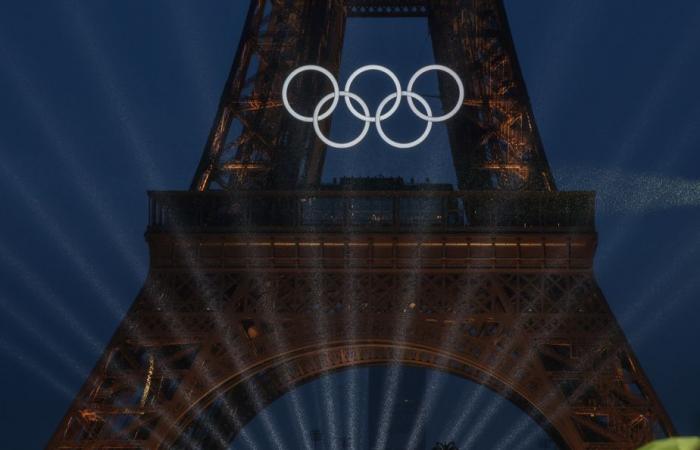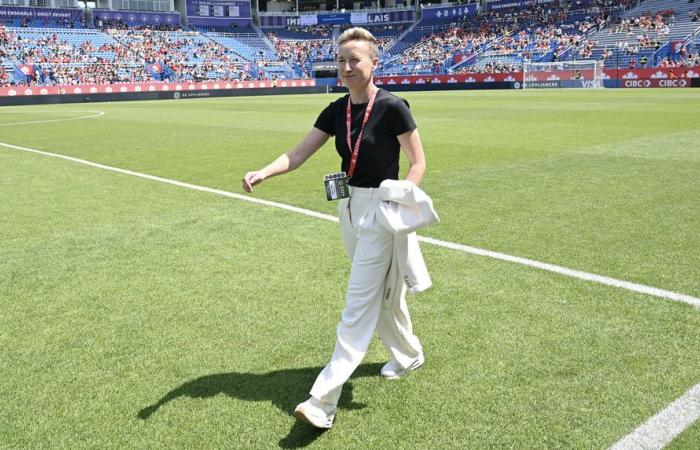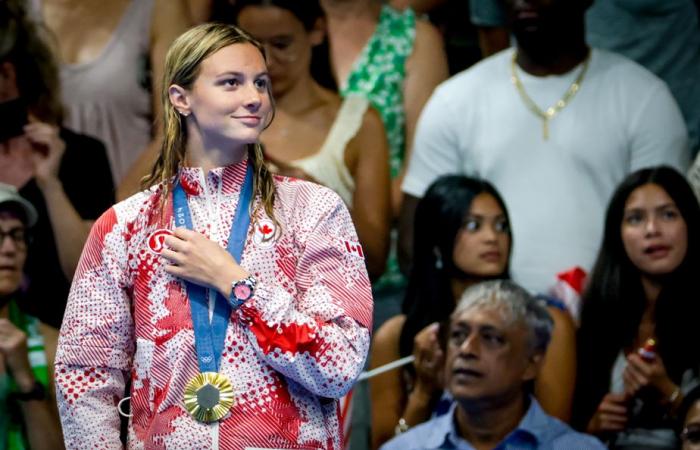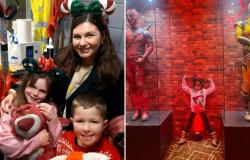Paris had given itself the mission of organizing grandiose Olympic Games for this first edition after the COVID-19 pandemic.
Posted at 8:13 a.m.
Alexis Bélanger-Champagne
The Canadian Press
The whole world — except Russia and Belarus, excluded due to the invasion of Ukraine — came together again for just over two weeks to celebrate the Olympic spirit, surpassing oneself and extraordinary athletes pushing back the limits of the human body.
A dazzling opening ceremony in the City of Lights, crowned by the unforgettable performance of The hymn to love by Céline Dion, in the heart of the Eiffel Tower, launched a fortnight where French athletes thrilled an entire country.
For its part, Canada experienced a record haul of medals, despite a huge black stain associated with a scandal that may not yet have finished spilling ink.
Shame games for Soccer Canada
Returning to the Olympics as defending champions, the Canadian women’s soccer team was rocked by a drone spying scandal before the Games even opened. Two employees were arrested by the Saint-Étienne police for trying to film the New Zealand team’s training.
Head coach Bev Priestman was eventually kicked out of the Paris Games and suspended by FIFA, while the team was penalized six points.
PHOTO GRAHAM HUGHES, CANADIAN PRESS ARCHIVES
Bev Priestman
Despite this sanction, the team managed to qualify for the elimination phase. However, they fell short of miracles, losing in the quarter-finals to Germany in a shootout.
Priestman was eventually fired by Soccer Canada in November. His predecessor, John Herdman, resigned as head coach of Toronto FC a few weeks later.
It is suspected that the use of drones by the Canadian women’s soccer team personnel dates back to his time. Herdman notably led the Canadian women’s soccer team during the Games in London in 2012 and Rio in 2016.
Queen Summer
The drone spying scandal has cast a shadow over what was otherwise an extraordinary Olympics for the Canadian delegation.
The 27 medals, including nine gold, represented two records for Canada for a Summer Games without a boycott. These numbers allowed Canada to finish in 11the level in both rankings.
Eight of those medals were won in swimming, and Toronto’s Summer McIntosh lived up to the high expectations placed on her with a personal contribution of four medals, including three gold.
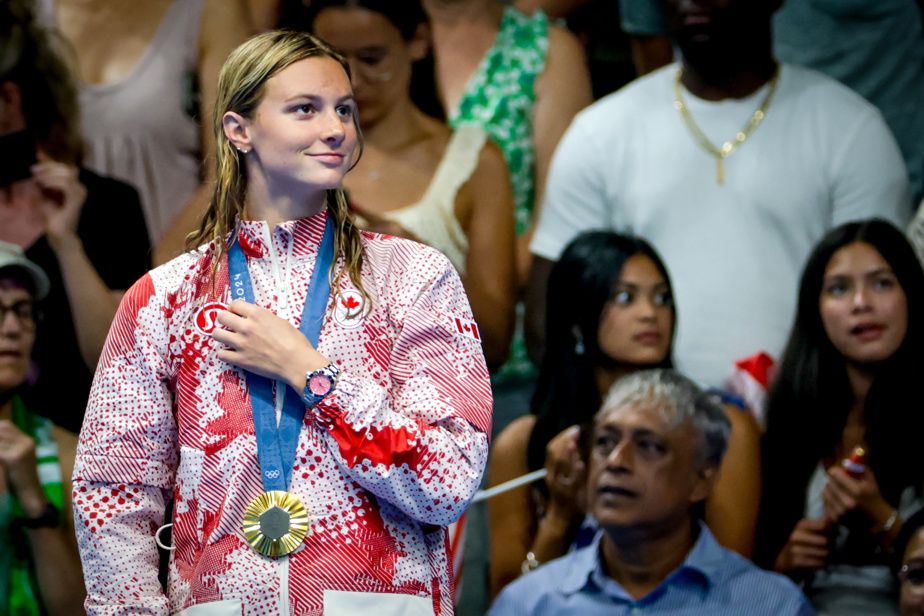
PHOTO OLIVIER JEAN, LA PRESSE ARCHIVES
Summer McIntosh
In athletics, Canada collected five medals, including gold in the hammer throw from Ethan Katzberg and Camryn Rogers. Aaron Brown, Jerome Blake, Brendon Rodney and Andre De Grasse also won gold with a spectacular run in the 4×100 meter relay.
There were also several heartbreaking moments for Canadian athletes. They notably finished in fourth or fifth position 22 times during the Paris fortnight.
Quebec swimmer Mary-Sophie Harvey knows something about this, having finished in fourth position four times. Alberta diver Caeli McKay also placed fourth twice, welcoming the result sometimes with tears, sometimes with a smile.
A charmed city
The athletes who had experienced the Tokyo Games with empty stands three years earlier were finally entitled to “real” Olympics this time.
In addition to being able to count on their loved ones in the stands, French sports fans and those from the four corners of the world made the city vibrate.
French fans notably celebrated the victories of swimmer Léon Marchand, making him “King Léon”, of table tennis brothers Alexis and Félix Lebrun, of the men’s volleyball team, etc. Cries of joy echoed across the city, from one bistro to another.
Aside from an attack on the rail network at the start of the Games, the event went off smoothly. The triathlon competitions did take place with the swimming portion in the Seine, despite a one-day postponement for the men’s triathlon due to poor water quality. There was no strike by transport, garbage collectors or anyone else to disrupt the competitions and deflect the spotlight, which therefore remained on the athletes and their exploits.
Once again, sport brought the whole world together in joy.

